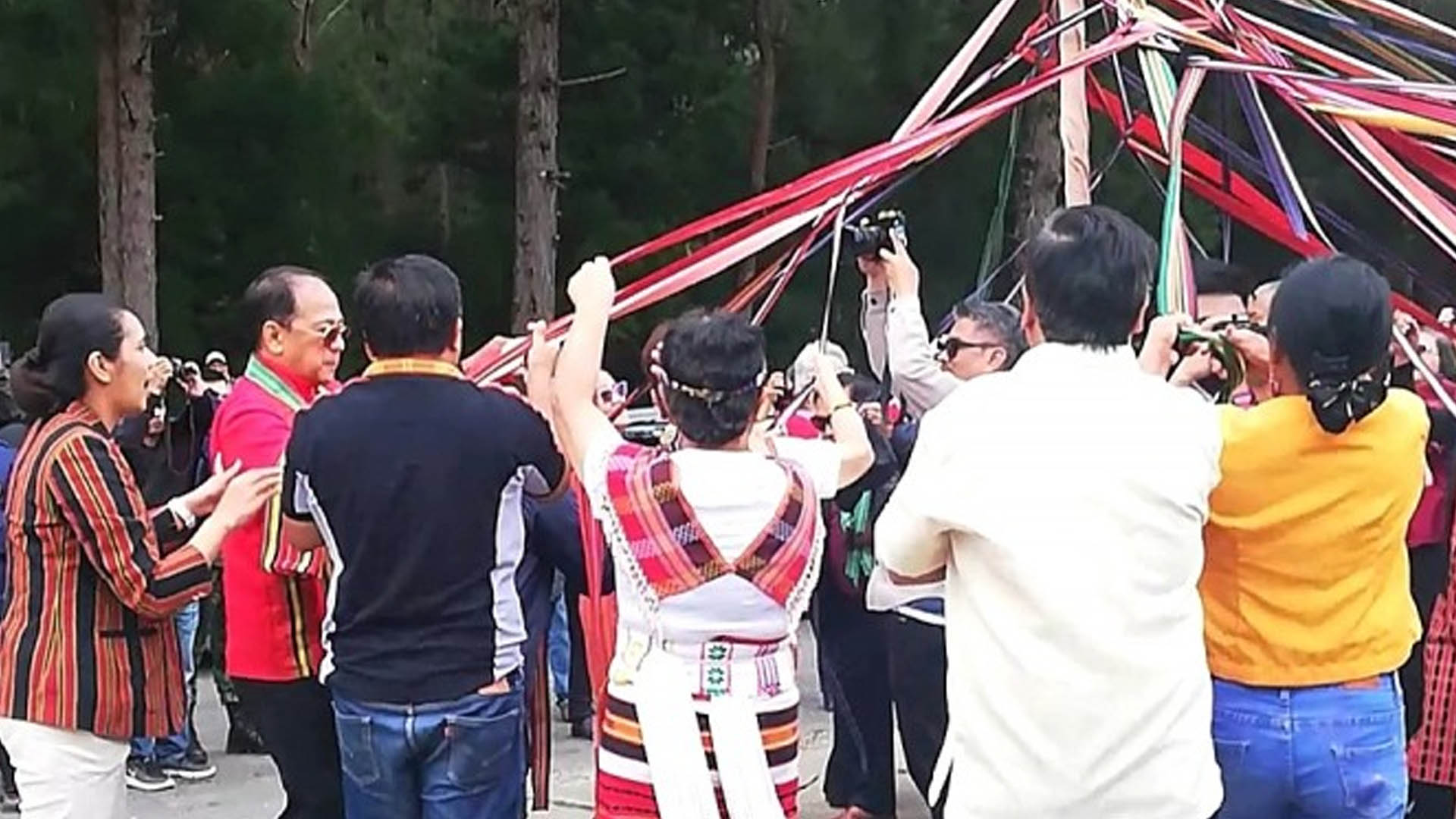Office of the Presidential Adviser on Peace, Reconciliation and Unity (OPAPRU) Secretary Carlito Galvez on Wednesday said the government would continue to bring socioeconomic interventions to the Cordillera Administrative Region (CAR) as part of honoring the peace agreement in the area that was signed 37 years ago.
Galvez made the assurance during a speech at the commemoration program of the 37th anniversary of the Mt. Data Sipat agreement.
The agreement was part of the indigenous “Bodong” (peace) process signed on Sept. 13, 1986 by the national government, led by then President Corazon Aquino, and the local armed group Cordillera Bodong Administration-Cordillera People’s Liberation Army (CBA-CPLA), led by late former priest Conrado Balweg.
Galvez noted that the Cordillera is one of the seven geographical zones selected and prioritized to complement peace process lines under the government’s “Payapa at Masaganang Pamayanan” (Pamana) program for 2024, which has been allocated with a PHP700,568,003 budget for education assistance, health insurance, livelihood, roads and bridge projects.
“OPAPRU’s strong support to Cordillera’s quest for meaningful regional autonomy is anchored on the Philippine Development Plan 2023-2028. Our agency also has a parallel framework in which it works closely with stakeholders as we continue to strengthen the foundations where long-lasting peace and sustainable development can take root and flourish here in the Cordillera,” Galvez said.
The Mt. Data Sipat led to the issuance of Executive Order 220 which created the CAR in preparation for its conversion as an autonomous region.
“The Sipat stands as a testament to our ironclad partnership of cooperation, trust and respect and to sustain the gains we have achieved. The OPAPRU has continued to carry out peace-building interventions to our (CBA-CPLA) communities. And today, we are pleased to be here as we recognize the grantees of the OPAPRU-NCIP Special Education Assistance Program (SEAP),” Galvez said.
“The education program is among the socio-economic interventions that we promised to give to the CBA-CPLA members or their next of kin as they embark on a new journey. May these youth fulfill their dreams for themselves and their families and become agents of peace in the Cordillera and the nation,” Galvez said, even as he vowed to help SEAP graduates get employment.
Continuing peace
Edna Tabanda, co-chair of the Regional Development Council (RDC) and a private sector representative in the RDC, cited RDC strategies that align with the national government’s socio-economic agenda under the leadership of President Ferdinand R. Marcos Jr.
These include strengthening of a “normalization program” particularly on socio-economic interventions that would include former CBA-CPLA members as peace advocates; strengthening peace and development through regional autonomy advocacy; and continuing to lobby for the creation of the Cordillera Autonomous Region.
While the national police would remain as the peacekeeping force in the proposed autonomous region, it should be supported by the indigenous knowledge and practices of settling conflict and peace negotiations, especially among tribes and communities, Tabanda said.
“Remembering the signing of Sipat is a great avenue to remind everyone of its significance which was a commitment to establish autonomy in response to peace and development, strengthen our stand that Cordillera autonomy is a strategy to bring the National Government closer to the people and strengthen participatory governance,” she said.
“The establishment of a Cordillera Autonomous Region is the best option for a just and lasting peace and inclusive growth where indigenous knowledge, practice, and culture-sensitive governance will be adopted,” she added. (PNA)























